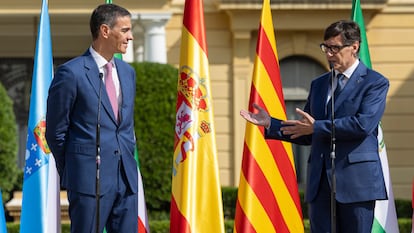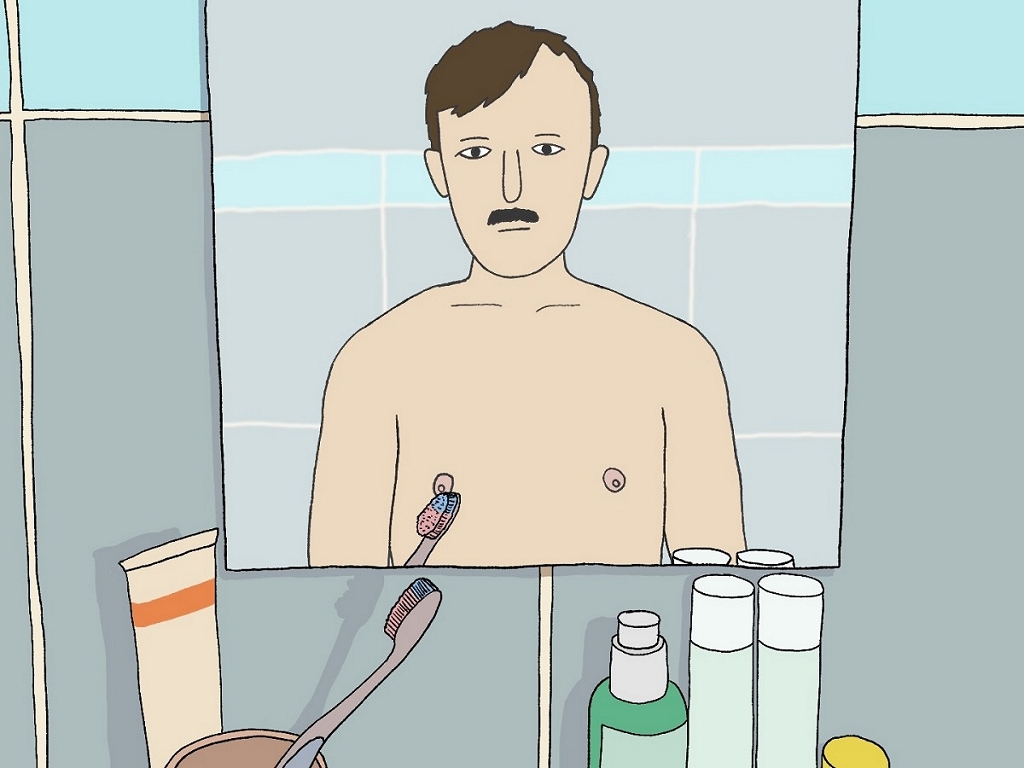The PSOE and Juns pact promotes the distribution of migrant minors from the Canary Islands | Spain

The agreement between Junts and PSOE to delegate to the Generalitat Some of the state competencies in immigration It has triggered a domino effect that will reach the Canary Islands. After Tuesday's announcement, the Government reactivates the negotiation of the change of foreign law to impose the distribution of migrant minors by all autonomous communities. The support of the PP has not been supported for a long time, but the perspectives regarding the position of the neoconvergents have changed. Government sources warn that modifying the law was always the objective, but the measure, lying last summer in Congress by the NO of the PP, Vox and Junts, had been in a drawer for months due to the lack of support. « Junts wanted the competitions to sit down to talk about minors and that is what we are negotiating now, » says a ministerial source to El País. « It seems that they are for the work, » announces another.
The critical situation of the nearly 5,800 minors in the Canary Islands (and the 420 in Ceuta) has become one of the topics that is wearing the most wearing all parts of the negotiation. After the attempts to achieve the support of the PP, the Canarian President, Fernando Clavijo, launched a new proposal with the support of the PNV so as not to hide with the change of the foreigner law that did not advance. He patch It consisted of approved an extraordinary cast of 4,400 minors (4,000 from the islands and 400 from Ceuta), but the last news of it was already a month ago, when the Minister of Youth and Childhood, Sira Rego, and Clavijo They celebrated having agreed on the criteria to distribute children. After that, silence.
The mood is now another, although today's average phrases sound to those that have been repeated on different occasions throughout the last year. Sitting to negotiate, Juns did not hide that without the agreement on immigration powers he would not support a solution for minors, according to their interlocutors. Nor did he ignore that his claim (even today) is that when weighing the cast, Catalonia did not receive more children. “A year ago we voted against because we were told that the idea was to show Catalonia, the most tension community, but it was decided to send more minors. Until we have a proposal that reduces the pressure we cannot (support it), ”Junts sources have defended these days.
The first issue, the agreement of the competences, is much clearer than a few days ago, while the one referring to the cast continues to depend on the distribution criteria (Rent, reception effort, population, insularity and border …). Regardless of the formula chosen, government sources say, Catalonia will have to host, but the calculations, which take into account that the region already has a surplus of places compared to others, suggest that transfers will be limited to dozens of minors. It is the same case as the Basque Country.
Another of the keys to unlock the negotiation is the minister and vice president, María Jesús Montero, who will meet Monday with Clavijo. It depends on the financing formula that content to all those who have to support it. The maximum version of the PP, when it still participated in the conversations, demanded that the State cover all the expenses of the minors transferred until they turned 18, but the sources consulted doubt that Montero assumes all that weight.
The initial idea is to establish an amount per child (between 90 and 145 euros a day) to cover accommodation, maintenance and attention and a fixed amount to co -finance the investments that communities will have to make to welcome and attend minors and hire the necessary personnel. In addition, it would cover the expenses of Ceuta and Canary Islands derived from transfers.
According to an internal document to which the country has had access, in the event of distributing 4,500 minors, it would be talking about 225 million euros per year that, as Canary Islands, could be advanced before the derivation. In the event that the Treasury accepts to cover expenses until the age of majority, as well as the Canary Islands, this figure would decide every year, according to the adolescents moved (approximately 16 and 17 years old) reach the age of majority.
Even exceeded approval in Congress, another issue will be how the distribution is carried out taking into account that most autonomous communities are governed by the PP. Its leader in Congress, Miguel Tellado, has slipped privately that his party is also convenient for this issue to be resolved, but announced (and fulfilled) that it would not put anything easy. Most likely, they assume in the Government, according to enters into force, if finally it happens, the popular ones are precipitated to file a resource in the Constitutional.
Meanwhile, the almost 6,000 minors in the Canary Islands continue in overcrowding conditions, in centers that should host some tens, but that have stretched up to several hundred. Of the 88 reception centers in the islands, 49 are still emergency. “In 2023, we open emergency facilities with the intention of closing them and not only we have not done it, but we have not stopped opening more. My main problem is that I have no more space, ”laments the general director of Children's Protection of the Canary Islands, Sandra Rodríguez. The difficulties in documenting them are also huge so that the majority still have no residence authorization to which they are entitled and lack adequate activities for their training. Nor have the more than 600 Malian children who have requested asylum and who continue on the islands have a special treatment, when the Ministry of Migration could assume their attention in adult centers of the Peninsula. And a recurring problem has been perpetuated for years: errors in police reviews are taking dozens of children to adult and adult centers to children's centers.






:format(webp)/s3/static.nrc.nl/images/gn4/stripped/data133314127-765aec.jpg)
